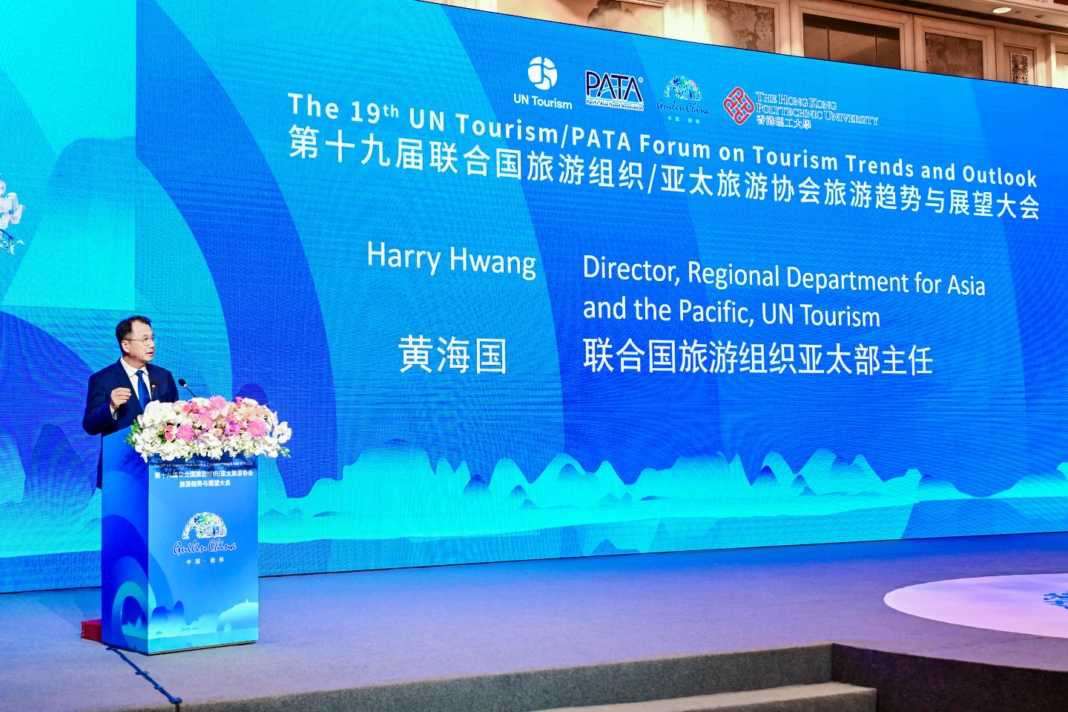United Nations, UNWTO – World Tourism Day 2025 focuses on sustainable travel and raises an important question: which countries are truly leading the way in balancing tourism growth with environmental and cultural preservation? The day is being marked worldwide with conferences, events, and campaigns that highlight the future of responsible travel.
World Tourism Day is observed annually on September 27 to raise awareness about the importance of tourism and its wide-reaching social, cultural, political, and economic impacts. It was established by the United Nations World Tourism Organisation (UNWTO) to commemorate the adoption of the organisation’s statutes in 1970, which laid the foundation for the creation of UN Tourism five years later.
This year, discussions around World Tourism Day have turned toward sustainability as countries seek to reduce the environmental footprint of mass travel. Recent international reports, including the Euromonitor Sustainable Travel Index, placed Sweden at the top of the global ranking for sustainable tourism, with Finland, Austria, Estonia, and Norway following closely. Switzerland, Denmark, and Iceland are also praised for their green policies, renewable energy adoption, and eco-friendly travel infrastructure.
For India, the relevance of sustainable tourism is increasing year by year. Surveys suggest that nearly three out of four Indian travellers now consider sustainability an important factor when planning a trip, whether that means staying in eco-certified accommodations, choosing low-emission transport, or supporting local communities at their destinations.
At the same time, accessibility and ease of travel remain major considerations for Indian tourists. A number of nearby countries are considered particularly easy for Indians to visit, thanks to visa-free or visa-on-arrival policies and affordable connectivity. Thailand has extended visa-free travel for Indian citizens until mid-2025 and continues to be one of the top international destinations for short, budget-friendly trips. Sri Lanka has also simplified entry with visa-on-arrival and e-visa facilities, while the Maldives offers visa-free entry for up to 90 days, making it attractive both for leisure and eco-tourism. Nepal and Bhutan remain culturally close and accessible without passports, further boosting their appeal. Indonesia, particularly Bali, offers visa on arrival for Indians and has become increasingly popular among younger travellers looking for a mix of culture, beaches, and sustainability-oriented stays. Island nations such as Mauritius and Seychelles, along with Gulf destinations like Dubai and Oman, are also preferred for their easy visa processes and quick flight connections.
As the global tourism industry recovers from the impact of the pandemic and adapts to new geopolitical realities, the balance between sustainability and accessibility has become crucial. European nations such as Sweden, Norway, and Switzerland are demonstrating how policy, innovation, and community involvement can create world-class sustainable destinations. Closer to home, countries like Thailand, Maldives, and Sri Lanka are combining accessibility with growing investments in eco-tourism.
The future of tourism, as World Tourism Day 2025 underlines, will not only depend on how many people travel but also on how responsibly they do so. For Indian travellers, the intersection of affordability, ease of access, and sustainable options will likely shape the most popular destinations in the years ahead.
SOURCE : UNWTO & DT | Follow Us: Facebook | Instagram | Twitter | Youtube |



